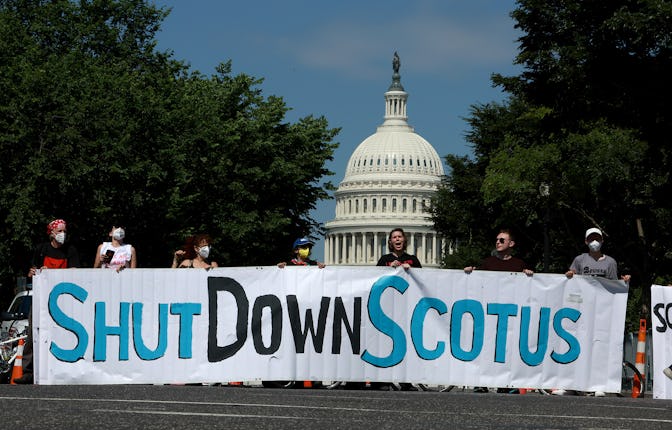“A woman has no rights to speak of”: The Supreme Court has ruled to overturn Roe
What was once a safe and legal medical procedure is now a crime in multiple states around the country.

This morning, the United States Supreme Court made official what had long been expected from the conservative-leaning institution, nullifying 1973’s landmark Roe v. Wade decision that guaranteed a federal right to abortion access. In the decision for Dobbs v. Jackson Women’s Health Organization, a draft version of which was leaked in early May, Justice Alito writes that “the Constitution does not confer a right to abortion; Roe and Casey are overruled, and the authority to regulate abortion is returned to the people and their elected representatives.” He also makes explicit reference to other fundamental civil rights cases such as Ogbergfell v Hodges, which affirmed the constitutional right to same-sex marriage, signaling a willingness from the conservative court to further roll back other protections once considered settled law, although Alito insisted in his opinion that “we have stated unequivocally that ‘[n]othing in this opinion should be understood to cast doubt on precedents that do not concern abortion.”
In a fiery dissent authored by liberal Justices Breyers, Sotomayor and Kagan, the stakes of Friday’s decision are made clear.
“[The ruling] says that from the very moment of fertilization, a woman has no rights to speak of,” the Justices write. “A State can force her to bring a pregnancy to term, even at the steepest personal and familial costs. An abortion restriction, the majority holds, is permissible whenever rational, the lowest level of scrutiny known to the law. And because, as the Court has often stated, protecting fetal life is rational, States will feel free to enact all manner of restrictions.”
While reproductive rights advocates, advocates, and providers have been preparing for this day since Politico initially published the leaked draft decision — and for years before that — Alito’s decision now means that abortions have become immediately criminalized in more than a dozen states whose “trigger laws” were put in place with the specific intent to activate the moment the court repealed Roe. Conversely, a number of states have already begun the process of establishing themselves as reproductive rights hubs where abortions are not only legal, but facilitated for out-of-state travelers in need of accommodations like lodging and transportation.
As America moves forward into this decidedly regressive phase of conservative dominion over people’s bodies, the question of “if” Roe will fall has transformed into what, if anything, can be done to stem the Republican onslaught on bodily autonomy in general. Democrats in Congress have thus far been unable to codify abortion access into law, and conservatives are already seizing the momentum today’s ruling has provided by pushing ahead with further attempts to legislate if, how, and when people can have babies.
For the millions of people now living in in fear in states where their ability to control their own bodies has been kneecapped by today’s ruling, the damage has already been done.